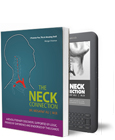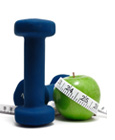Search
Search results
Growing Pains
... me explain the physical background to these growing pains. Muscles are soft and full of blood, which gives them their red colour. When muscles contract, they move the bones that make up the joints. However, during evolution, nature found that ...
View More
Muscle Cramps
... have any tips please? Cramps occur because of muscles contracting. The muscles in your legs are part of the skeletal muscle ...
Questions and Answers bones muscles joints muscle cramps cramps ...
View More
Scoliosis
... not backwards.)
Over the course of evolution, the muscles of the back developed to compensate, acting like pulleys to stretch the ...
Questions and Answers bones muscles joints scoliosis curved spine ...
View More
Arthritis
... by arthritis, the protective cartilage at the end of the bones is gradually worn away.
As the condition worsens, the bone around the ... difficult and lopsided walking may result as the inner thigh muscles go into spasm, restricting the sufferer's movement as he or she tries ...
View More
Computer-Related Illness
... symptom of stress is neck stiffness. If you touch the neck muscles of a crying baby or a person having a panic attack or a person in rage, ... hands. The tiny lumbricoid muscles located in between the bones of the hands (meta phalanges) often get inflamed and give annoying pain ...
View More
Muscle Pain
... been prescribed l0mg of amitriptylline at night to relax the muscles, which helps somewhat. I am also having acupuncture and take a cocktail ...
Questions and Answers bones muscles joints muscle pain ...
View More
Migraines
... fibrous canals inside the vertebrae, get squashed. The neck muscles can also get tight, because of the stress and tension, and this results ... the fluid round, but tight neck muscles and misaligned skull bones can disrupt this process. The result is that the brain doesn’t get ...
View More
Back Pain
... Because of this, the body tends to fall forward so the back muscles act like the ropes of a pulley, to keep us erect, (Think you always ...
Questions and Answers bones muscles joints back pain backache backaches ...
View More
Repetitive Strain Injury
... arm repeatedly. These repetitive movements use one group of muscles over and over again. The muscles get strained and then injured because ... muscles form cordlike tendons that attach the muscles to the bones. The tendons are usually white in colour because the blood supply to them ...
View More
Flaking Nails
... bowel disease such as ulcerative colitis.
All your muscles need calcium to contract. A calcium deficiency will cause inactivity in ... the calcium level in your blood, it "steals" it from the bones (leading to osteoporosis) and stops supplying it to less essential areas ...
View More



